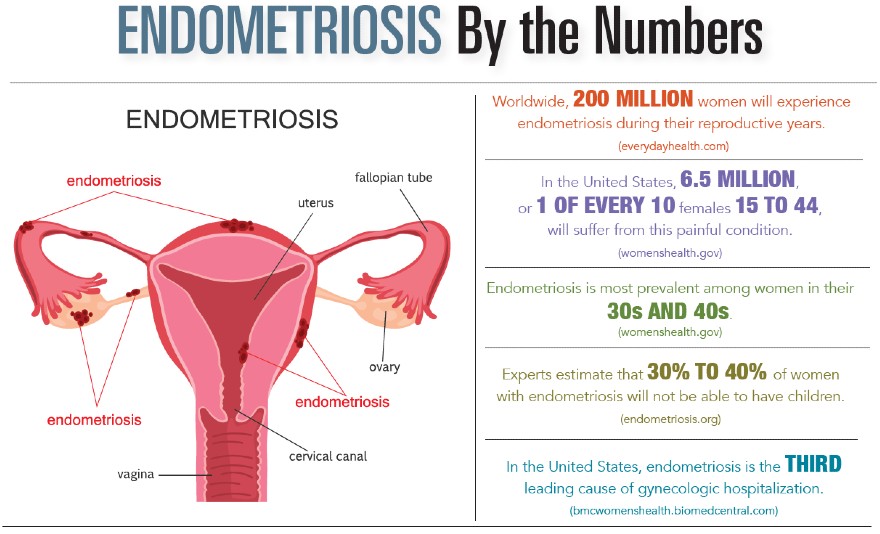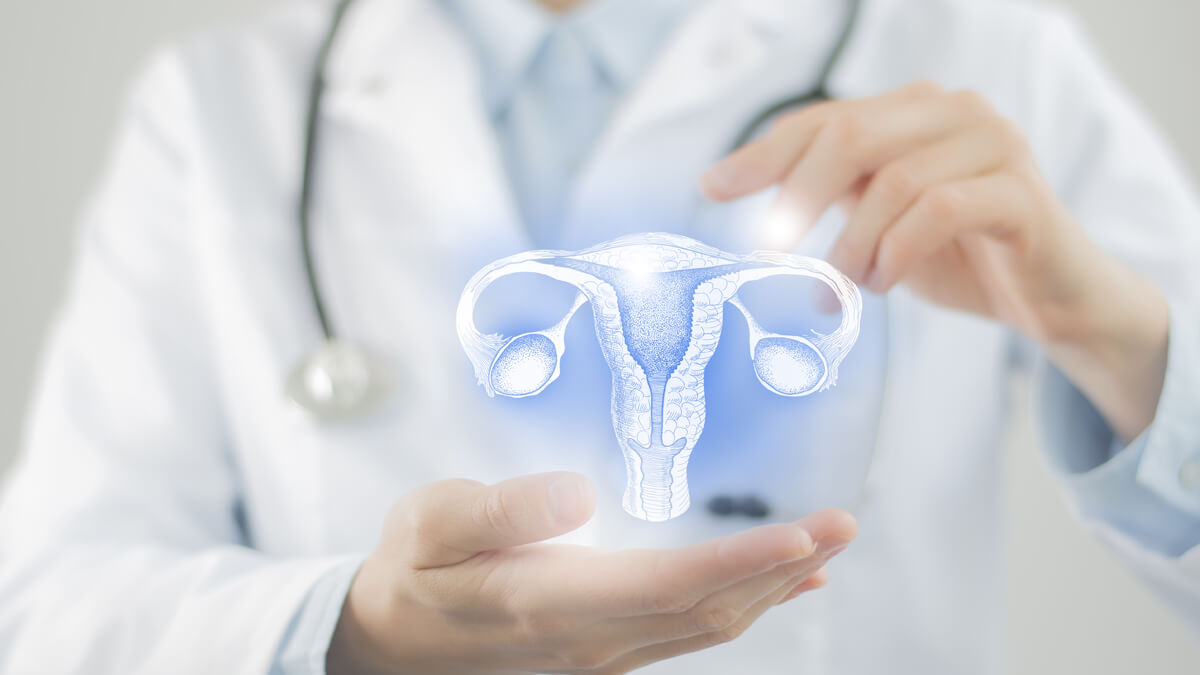For too many years, the importance of understanding and treating women with reproductive problems sat low on most doctors’ list of medical priorities. It was almost as if the accompanying pain and misery experienced monthly by countless women were part of the biblical curse laid upon Eve in the garden – to be expected and stoically tolerated. Thankfully, that has changed.
And the patronizing dismissal, “It’s all in your head,” is no longer an acceptable answer for the modern woman who is experiencing unusual pelvic pain and discomfort or who may be having difficulty conceiving a baby. In many cases, endometriosis may be the culprit causing both misery and infertility.
Endometriosis is a disorder that occurs when tissue similar to the tissue that normally lines the inside of the uterus grows outside of it. The ovaries, fallopian tubes and the tissue lining the pelvis are most commonly affected. If left untreated, this relatively common condition can stand in the way of a woman becoming pregnant.
Sumit Saraf, M.D., FACOG, is an obstetrics and gynecology specialist affiliated with Prisma Health USC physicians’ group. He currently practices at Palmetto Health – USC Obstetrics and Gynecology in Columbia. With 13 years of experience in this field, Dr. Saraf considers endometriosis to be “one of the most underdiagnosed conditions affecting female fertility. Nonspecific symptoms make diagnosis more difficult because they often do not seem serious enough to warrant a work-up.”
According to Jeris Cox, M.D., FACOG, of Mount Pleasant, “While the exact mechanism that causes endometriosis is not certain, a general theory is that the inside lining of the uterus is stimulated by estrogen every month. If an embryo (baby) does not implant and start growing in that lining, our body sheds it. However, in retrograde menstruation, some cells go backward into the pelvis through our fallopian tubes, sticking to any structure in the pelvis and abdomen. Each month, just like our endometrial lining gets stimulated, now these cells outside the uterus are also stimulated to grow and reproduce. As many as 50% of women with endometriosis will be seen for infertility as well.”
Dr. Cox has recently opened Adore Fertility in Mount Pleasant as a way to respond to local women’s reproductive issues. She and her all-female staff are passionate about helping women who desire to become mothers: “As females, we are blessed with this amazing body that can grow another human being, and, while it is fascinating, it also comes with enormous pressure of ensuring that eventually we can/will conceive.”
In addition to causing painful menstrual cycles, pain during sex, digestive issues and fertility complications, endometriosis may also be responsible for a 40% to 70% increased risk of miscarriage, according to some recent studies. This is not a disorder to be ignored or trivialized – especially for women who desire to be mothers at some point during their child-bearing years.
But, as Dr. Cox pointed out, “Even for those women who do not desire to become pregnant, the pelvic pain and discomfort still need to be addressed. First-line agents are generally medical, such as nonsteroidal anti-inflammatory agents with another medication to control the hormonal environment. However, it is not a one pill or one dose cures all situation, which can be the most frustrating part of treating this disease process for patients and physicians alike. Surgical intervention is another option for patients in severe pain.”
Dr. Saraf spoke positively about progress that is being made in this area: “Recently, the FDA has approved medications especially targeted toward endometriosis, including pills, which have been absent in the past. For surgery, robotic platforms have improved the dexterity and visualization at the time of surgical excision to enable complete excision with fewer risks of collateral damage.”
Perhaps Dr. Saraf summed it up best when he advised, “While there is no one-size-fits-all treatment option, women suffering from symptoms of infertility, pelvic pain or both should seek information from their providers pertaining to endometriosis prior to accepting the relegation that this condition is just the normal part of being a woman.”
Medical science and compassionate, caring doctors such as Dr. Saraf and Dr. Cox are part of the forward movement in this field of women’s reproductive health. It looks like we are finally moving up on the medical priority list.
By Janet E. Perrigo

